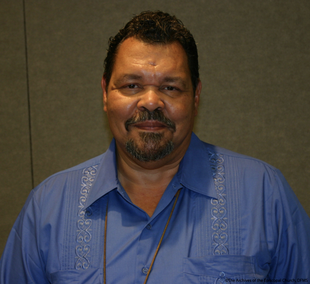Resolution C010 originated in the Diocese of California, where people from across the diocese have participated in Kairos Prison Ministry at San Quentin since the program’s founding in 1989. As this timeline shared by the Very Rev. Deborah White indicates, late in the summer of 2023 local volunteers discovered that Kairos International’s ethics code, which volunteers are required to sign, “uses sex assigned at birth for volunteers and for Kairos Outside Guests” (p. 9). The policy prohibits trans and non-binary volunteer participation, requiring them to literally cosign a denial of who they are. The policy also puts any clergy signing on behalf of parishioners in conflict with the Episcopal Church’s non-discrimination canons (I.17.5 and III.1.2).
Last Wednesday evening, as this Episcopal News Service story has also reported, C010 received a public hearing in Legislative Committee 17 on Accessibility and Inclusion. Four people testified in support, with none against. All four were from the Diocese of California, with two also serving on the diocese’s General Convention deputation. Two of the four are additionally part of TransEpiscopal’s steering committee – the Rev. Mees Tielens and the Rev. Cameron Partridge.
The Rev. Tielens testified,
We need queer folks, trans folks ministering to people in prison. As a trans person, I know what it is like to be considered not-quite-human, not quite deserving the same rights, dignity, bodily autonomy or privacy that other people get, to have people judge you before they even know you. Prisons are parallel worlds that society likes to tuck out of sight and surround with shame. Well, if there’s anything queer folks know, it’s the destructive power of shame.
He continued:
I write with a condemned trans woman at San Quentin, and visited her recently to take her confession. She had been taught, as had I, that God couldn’t love us the way we were. I don’t know if I can convey the damage that did to us. And so it was incredibly healing to both of us that I could offer her absolution as a trans priest, living proof of there being churches that don’t just tolerate but celebrate trans people and their gifts for ministry.
I’m here today asking the Episcopal Church to stand behind its principles not for my own sake. Because the real issue is that Kairos doesn’t just deprive me of the opportunity for mutual ministry–it deprives queer and trans folks on the inside, a particularly cruel reality for people already so deprived of connection and authenticity.
Christina Reich, a member of Grace Episcopal Church in Martinez, California, spoke of how meaningful this ministry has been to her and her son who was formerly incarcerated: “I devoted fourteen years of my life to Kairos Prison Ministry because it literally saved my life and that of my son.” It was devastating for Reich to discover the discriminatory policy. “I LOVE THIS MINISTRY and want to continue, but I cannot and will not sign my name to any such discriminatory policy. Our queer siblings are beloved children of God and have endured so much pain from people that call themselves Christian.” Continuing these ministries unchanged in a “don’t ask, don’t tell” mode is also not acceptable, Reich argued. Instead, “Let’s work together for change and continued reconciliation as an interfaith community. Let’s ensure this beautiful ministry is available to ALL of God’s children, not just SOME.”
The Very Rev. White spoke of her experience as a forensic psychologist prior to her ordination, providing counseling to trans people incarcerated in the California prison system. “Prison is a hard and unforgiving place, but no group of individuals is more brutally abused than transgender inmates. These individuals are punished unmercifully for simply being who they are. They are the people of whom Jesus spoke when he asked his followers to care for those that society considers least because what we do for them we do for him.”
The Rev. Partridge connected the resolution to the idea of “communion across difference,” a theme in the Episcopal Church and wider Anglican Communion’s continuing reflection on sexuality and gender (and represented in several resolutions coming before this General Convention, as this ENS article reports). Multi-faith and ecumenical ministries with people who are incarcerated “are important forms of communion across difference, which are crucial in this moment when our country, our wider world, and our church are all too often divided. But we cannot allow such engagement to include signing onto policies that conflict with, and in fact violate, our own hard-won non-discrimination canons.”
As the Rev. Tielens concluded, “Trans people work across differences every day. It’s time for the Church to take some of that burden off our shoulders and stand for what it believes: seeking and serving Christ in all persons.”
The Committee voted unanimously to recommend to their respective houses to adopt the resolution. Stay tuned for further news on its journey through Convention next month.


 RSS Feed
RSS Feed